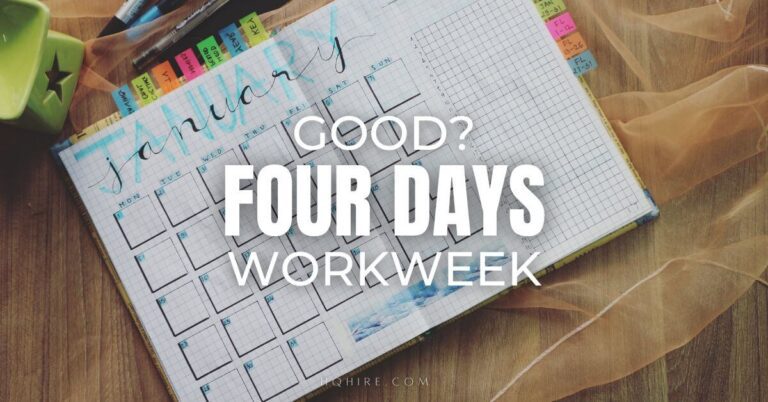Job interviews tricky questions such “Tell me about a time you needed to make a quick decision.” aims to assess your ability to think on your feet and handle pressure. Employers ask this to gauge your decision-making skills and how you perform under stress.
Being prepared with a strong answer can showcase your problem-solving abilities and impress your interviewer.
Don’t worry if you feel unsure about how to respond. It’s a chance to highlight your strengths and share a compelling story from your work experience.
Key Takeaways
- Prepare a specific example that showcases your decision-making skills
- Structure your answer using the STAR method for clarity
- Practice your response to boost confidence during the interview
Why Do Employers Ask “Tell Me About A Time You Need To Make A Quick Decision”
Employers ask this question to gain insight into your decision-making skills under pressure. They want to see how you handle unexpected situations and think on your feet.
Your ability to make quick decisions shows your confidence and leadership potential. It also demonstrates your problem-solving skills and how well you perform in fast-paced environments.
By asking about a specific example, employers can assess your:
- Ability to prioritize
- Critical thinking skills
- Judgment and reasoning
- Adaptability to changing circumstances
This question helps them understand how you might react to similar situations in their workplace. It gives them a glimpse of your thought process and how you approach challenges.
Employers also want to see if you can:
- Stay calm under pressure
- Take responsibility for your choices
- Learn from your experiences
Your answer can reveal valuable soft skills like communication and resourcefulness. These qualities are crucial in many roles, especially those requiring quick thinking and independent action.
Common Variations Of “Tell Me About A Time You Need To Make A Quick Decision”

Interviewers often ask about quick decision-making in different ways. Here are some common variations you might encounter:
- “Describe a situation where you had to make a fast choice under pressure.”
- “Share an example of a time you made a snap judgment at work.”
- “Tell me about a moment when you had to think on your feet.”
These questions aim to assess your ability to handle unexpected situations. They want to see how you perform when time is limited.
Some other ways they might phrase it:
- “Can you recall a time when you couldn’t consult others before making a decision?”
- “Give an example of when you had to trust your gut instinct.”
- “Explain a scenario where you made a quick call that had significant consequences.”
When answering, focus on situations that showcase your decision-making skills. Highlight how you analyzed the problem, weighed options, and acted swiftly.
Include the outcome of your decision.
- What did you learn?
- How did it impact the situation?
Practice answering these variations to feel confident in your interview. Your experiences will shine through when you’re prepared for different phrasings of this common question.
How To Answer “Tell Me About A Time You Need To Make A Quick Decision”

Answering this question well can show your ability to think on your feet and handle pressure. Here’s a step-by-step approach to craft a strong response.
Step 1: Choose a relevant example
Pick a situation where you had to make a quick decision that had a positive outcome. Make sure it’s from your work or academic experience.
Think about times when you:
- Solved an urgent customer issue
- Fixed a sudden technical problem
- Handled an unexpected team conflict
Your example should show your decision-making skills and ability to act fast under pressure.
Step 2: Set the scene
Briefly explain the situation and why a quick decision was needed. Keep it short and to the point.
For example: “During a big product launch, our main server crashed 30 minutes before the event. We had 500 people waiting, and I had to decide how to proceed.”
This gives context without going into too much detail.
Step 3: Describe your thought process
Explain how you weighed your options and came to a decision. This shows your analytical skills and ability to think clearly under pressure.
You might say: “I quickly considered three options:
- Delay the event
- Use a backup server
- Switch to a live demo instead of a full product showcase
I chose option 3 because it was the fastest solution and would still give attendees a good experience.”
Step 4: Explain your actions
Detail the steps you took to implement your decision. This shows your ability to take charge and act decisively.
For instance: “I informed the team of the change and assigned new roles:
- Sarah would handle the live demo
- John would explain the technical issues to the audience
- I would manage questions and keep the event on track
We quickly revised our presentation and were ready in 15 minutes.”
Step 5: Share the results
Describe the outcome of your decision. Focus on positive results and what you learned from the experience.
You could say: “The event was a success despite the setback. Attendees appreciated our honesty about the technical issues. We even got positive feedback on the live demo format. This experience taught me the value of quick thinking and flexibility in high-pressure situations.”
Remember to practice answering this question before your interview. It will help you feel more confident and prepared.
Best Example Answers To “Tell Me About A Time You Need To Make A Quick Decision”

Crafting a strong response to this question shows your ability to think on your feet and handle pressure. The following examples demonstrate how to highlight your decision-making skills for different career stages and situations.
Example Answer For A Recent Graduate
“During my senior year group project, our team lead dropped out a week before the deadline. I quickly assessed our progress and skills, then reorganized tasks to ensure we met our goal. I delegated responsibilities based on each member’s strengths and set up daily check-ins.
We submitted the project on time and received an A. This experience taught me the value of swift action and clear communication under pressure. It also showed me how to leverage team strengths effectively when faced with unexpected challenges.”
Example Answer For An Experienced Candidate
“In my role as a project manager, a key supplier suddenly went bankrupt mid-project. I had 24 hours to find a replacement or risk missing our deadline. I immediately:
- Reviewed our supplier database
- Called trusted contacts for recommendations
- Evaluated three potential replacements
I chose a slightly pricier but more reliable option. This quick decision allowed us to stay on schedule and maintain quality. It also led to a long-term partnership with the new supplier, improving our overall supply chain resilience.”
Example Answer For Applying For A Leadership Position
“As a team lead, I faced a critical server crash during a major product launch. With thousands of users affected, I had minutes to decide our course of action. I quickly:
- Assembled key team members
- Assessed the situation and potential solutions
- Decided to roll back to the previous stable version
This decision minimized downtime and protected user data. I then led a post-mortem to prevent future incidents. This experience reinforced the importance of having clear problem-solving processes in place for emergencies.”
Example Answer For An Industry Change
“While transitioning from finance to tech, I encountered an urgent API integration issue during my first week. Despite my limited tech background, I needed to make a quick call to keep the project on track.
I rapidly researched potential solutions and consulted a senior developer. Based on this information, I decided to use a third-party integration tool. This choice allowed us to meet our deadline and gave me time to learn the intricacies of our system.
This experience taught me the value of leveraging available resources and not being afraid to ask for help when making quick decisions in a new field.”
Example Answer For A Career Change
“During my career shift from teaching to sales, I faced a dilemma with a potential client. They wanted an immediate decision on a custom package, or they’d go to a competitor. I had to act fast without full product knowledge.
I decided to:
- Be honest about my recent career change
- Offer a customized solution based on their needs
- Promise expert follow-up within 24 hours
The client appreciated my transparency and agreed to wait. This allowed me to consult with my team and create a tailored proposal. We won the contract, and I learned the power of authenticity in building trust quickly.”
Join over 11,000+ achievers who are committed to achieving their career goals!





![Jobs of The Future [2025 Job Future Outlook] 8 Jobs of The Future [2025 Job Future Outlook]](https://hqhire.com/wp-content/uploads/2020/12/Jobs-Of-The-Future-Report-By-World-Economic-Forum-Key-Takeaways-768x402.jpg)
